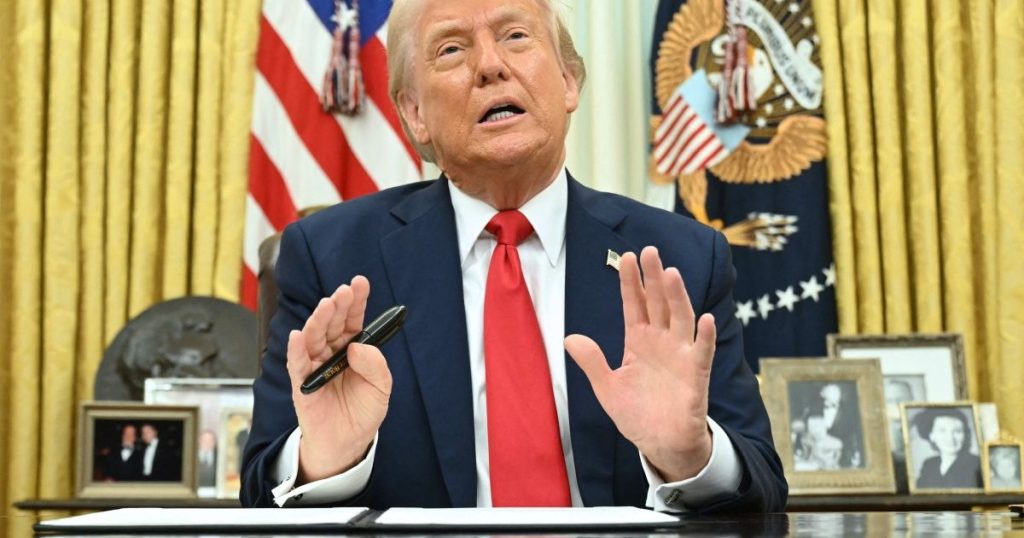The Trump administration’s abrupt termination of visas for hundreds of international students, triggering widespread fear of immediate deportation, has been partially reversed following legal challenges and public outcry. This initial action, stemming from a policy that allowed the revocation of visas for students deemed to be acting against U.S. interests, affected an estimated 1,800 students and 280 universities. The policy, as articulated by then-Secretary of State Marco Rubio, targeted individuals involved in political protests or with prior criminal charges, including minor offenses like driving infractions. The swiftness and seemingly arbitrary nature of the revocations created significant anxiety and disruption, prompting many students to preemptively leave the country to avoid potential detention or deportation. This initial wave of visa terminations marked a significant escalation in the administration’s scrutiny of foreign students and raised concerns about due process and the potential chilling effect on academic freedom.
The policy’s implementation relied heavily on the Student and Exchange Visitor Information System (SEVIS), a database used to monitor foreign students’ visa compliance. By terminating students’ records in SEVIS, the administration effectively stripped them of their legal status, making them vulnerable to immediate immigration enforcement actions. The move sparked widespread condemnation from universities, legal experts, and student advocacy groups, who argued that the policy violated students’ rights and unfairly targeted individuals for protected activities like peaceful protest. The lack of clear guidelines and the inclusion of minor offenses like traffic violations further fueled the criticism, raising concerns about the potential for discriminatory application of the policy.
The tide began to turn when over 100 lawsuits were filed by affected students challenging the legality of the visa revocations. These legal challenges argued that the administration had failed to provide adequate due process and had acted arbitrarily in terminating students’ visas. The pressure mounted as stories of students facing imminent deportation and the disruption to their academic pursuits gained media attention. In a significant legal development, Justice Department attorney Elizabeth Kurlan informed a federal court in California that immigration officials were reevaluating the policy and developing a new system for reviewing and terminating visas for international students. This signaled a potential shift in the administration’s approach and offered a glimmer of hope for the affected students.
Following the legal challenges and the Justice Department’s announcement, the government began reinstating the SEVIS records of many of the affected students. This marked a partial reversal of the initial policy and offered a reprieve to those facing immediate deportation. While the reinstatements were welcomed, legal experts and advocates cautioned that the ordeal was not over for the students. The underlying policy remained in place, and Immigration and Customs Enforcement (ICE) retained the authority to terminate SEVIS records for other reasons. This lingering uncertainty continued to create anxiety for students and raised questions about the long-term impact of the policy on international education in the United States.
The Justice Department’s acknowledgment of the need for a new system for reviewing visa terminations suggests a recognition of the flaws in the initial approach. While the details of the new system remain unclear, it is expected to provide greater clarity and due process protections for students. The ongoing legal battles and policy changes highlight the complex and often contentious relationship between the U.S. government and international students. The Trump administration’s actions reflect a broader trend of increased scrutiny and restrictions on immigration, with foreign students becoming caught in the crosshairs.
The saga of the visa revocations underscores the importance of due process and the need for clear and consistent policies governing international students. The arbitrary nature of the initial revocations and the subsequent legal challenges highlight the vulnerability of foreign students in the U.S. immigration system. The ongoing debate over the appropriate level of scrutiny and the balance between national security concerns and academic freedom will continue to shape the future of international education in the United States. The experience of these students serves as a stark reminder of the human cost of policy changes and the importance of upholding the rights of all individuals, regardless of their immigration status.














